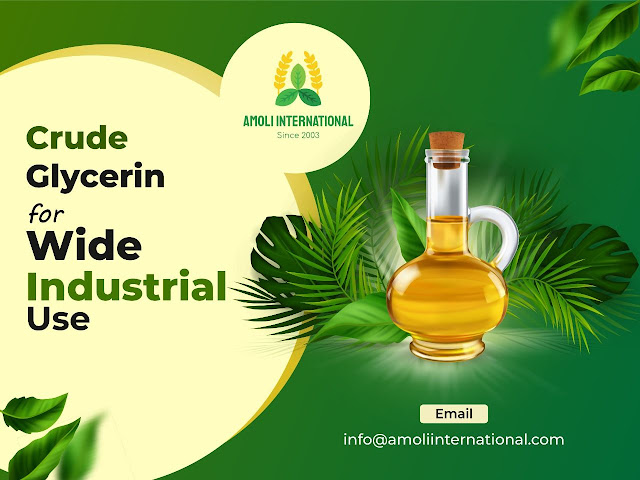Exploring the Chemical Properties of Glycerin: An In-Depth Analysis
Glycerin is a colorless, odorless, and viscous liquid that is widely used in the manufacturing industry. Glycerin, also known as glycerol, is a trihydroxy alcohol that is derived from animal fats, vegetable oils, and biodiesel production. It is a natural byproduct of the soap-making process and is widely used in the manufacturing of various products, including pharmaceuticals, cosmetics, and food products. Glycerin has a sweet taste and is non-toxic, making it safe for use in a wide range of applications. Crude glycerin is a byproduct of the biodiesel production process. It is obtained by the hydrolysis of fats and oils and is a viscous liquid that contains impurities such as methanol, salts, and fatty acids. Crude glycerin is typically dark brown and has a high viscosity. It is also known as unrefined glycerin and is less pure than refined glycerin.
Chemical Properties of Glycerin
Glycerin has a molecular formula of C3H8O3 and a molecular weight of 92.09 g/mol. It is a colorless, odorless, and viscous liquid that is soluble in water and alcohol. Glycerin is a triol, which means it has three hydroxyl groups (-OH) attached to its carbon backbone. These hydroxyl groups make glycerin highly reactive and give it a wide range of chemical properties. Glycerin has a boiling point of 290°C and a melting point of 17.8°C.
Uses of Glycerin
Glycerin has a wide range of uses in various industries. In the food industry, it is used as a sweetener, humectant, and thickening agent. In the pharmaceutical industry, it is used as a solvent and a lubricant. Glycerin is also widely used in the cosmetics industry as a moisturizer, emollient, and humectant. In the manufacturing industry, it is used as a raw material in the production of various chemicals, such as propylene glycol and epichlorohydrin.
Crude glycerin is typically classified based on its purity and specifications. The American Society for Testing and Materials (ASTM) has established a set of specifications for crude glycerin, which include the percentage of glycerol, methanol, water, and ash content. The specifications also include the color, odor, and viscosity of the crude glycerin. Crude glycerin is typically classified as 80%, 85%, or 90% glycerol.
Differences between Crude and Refined Glycerin
The main difference between crude and refined glycerin is their level of purity. Crude glycerin contains impurities such as methanol, salts, and fatty acids, while refined glycerin is a pure form of glycerin that has been processed to remove impurities. Refined glycerin is typically used in applications where a higher degree of purity is required, such as in the pharmaceutical and cosmetic industries.
Despite its impurities, crude glycerin has several benefits over refined glycerin. One of the main benefits is its lower cost, as crude glycerin is a byproduct of the biodiesel production process. Crude glycerin is also more readily available than refined glycerin, as it is produced on a larger scale. Additionally, crude glycerin has been found to have antimicrobial properties, which make it useful in the production of antibacterial soaps and other products.
One of the main challenges of using crude glycerin is its impurities, which can affect the quality of the final product. Crude glycerin can contain methanol, which is toxic and can cause health problems if ingested. Additionally, crude glycerin can contain salts and other impurities that can affect the performance of the final product. To overcome these challenges, crude glycerin must be properly processed and purified before it can be used in various applications.
The future of glycerin production looks bright, as the demand for biodiesel continues to grow. This growth is expected to lead to an increase in the production of crude glycerin, which can be used in a wide range of applications. Additionally, advances in glycerin production technology are expected to improve the quality of crude glycerin and make it a viable alternative to refined glycerin.
In conclusion, glycerin is a versatile and widely used substance that has a wide range of chemical properties. Crude glycerin is a byproduct of the biodiesel production process and has several benefits over refined glycerin, including lower cost and antimicrobial properties. However, crude glycerin also has several challenges, including its impurities and toxicity. The future of glycerin production looks bright, and advances in technology are expected to improve the quality of crude glycerin and make it a viable alternative to refined glycerin.



Comments
Post a Comment